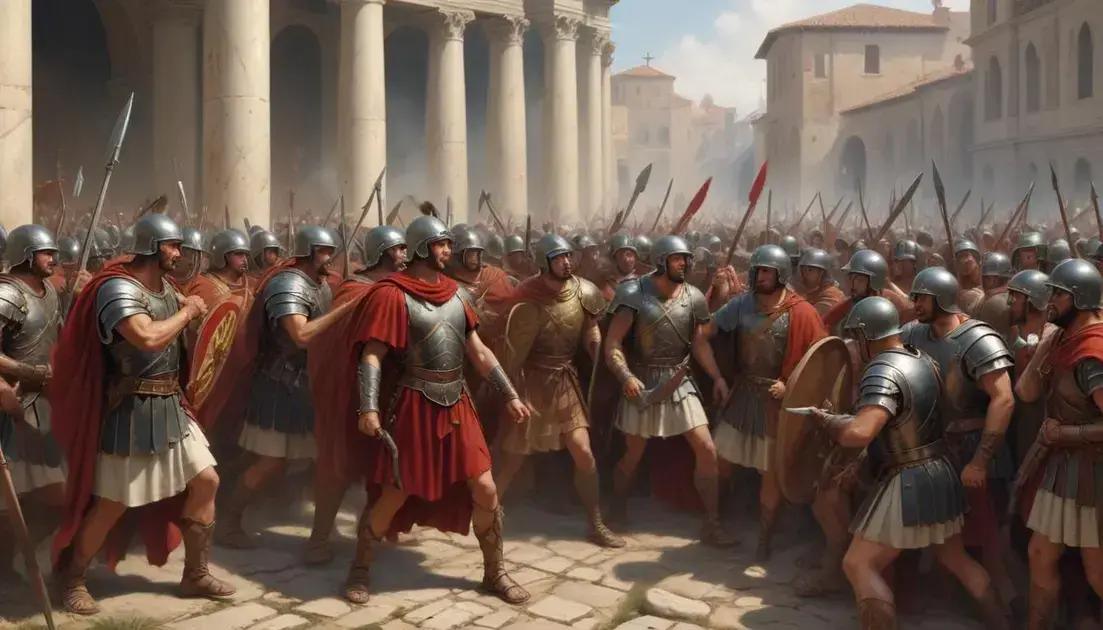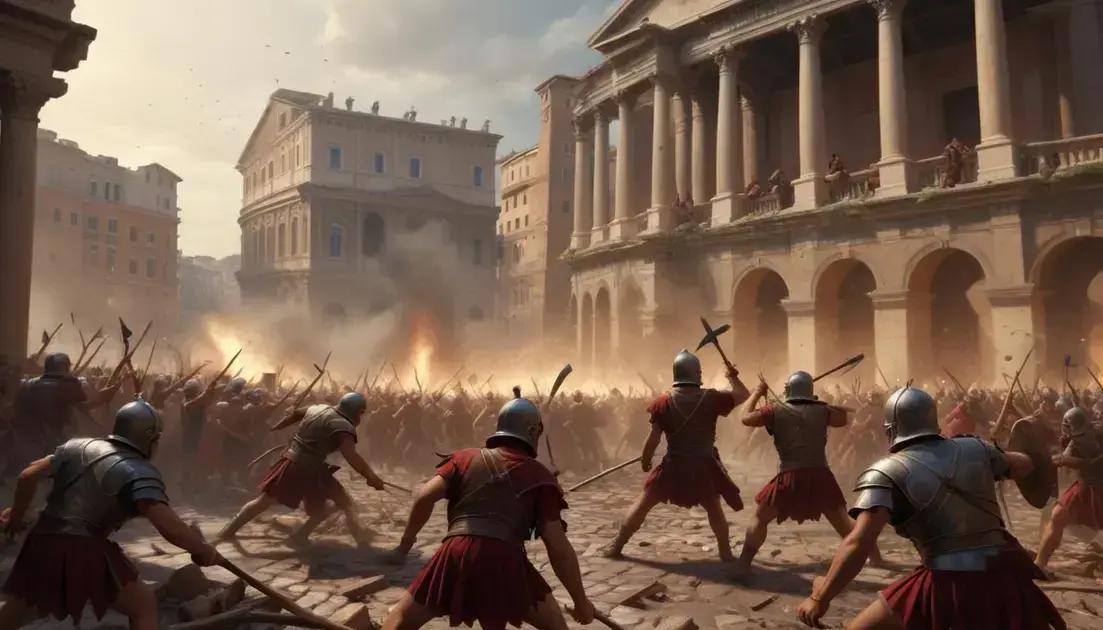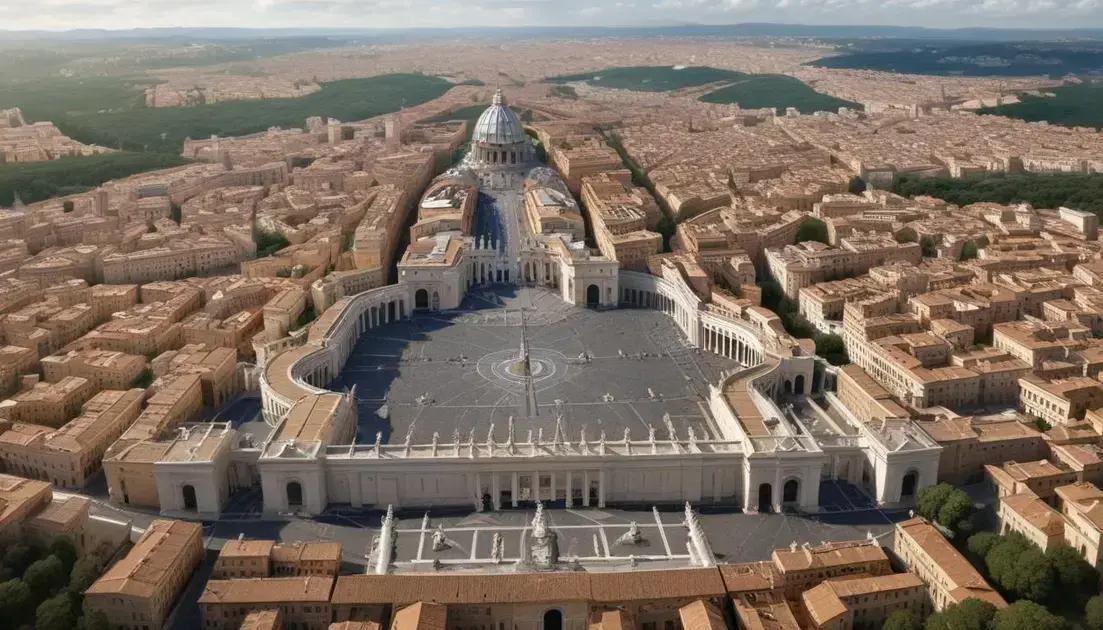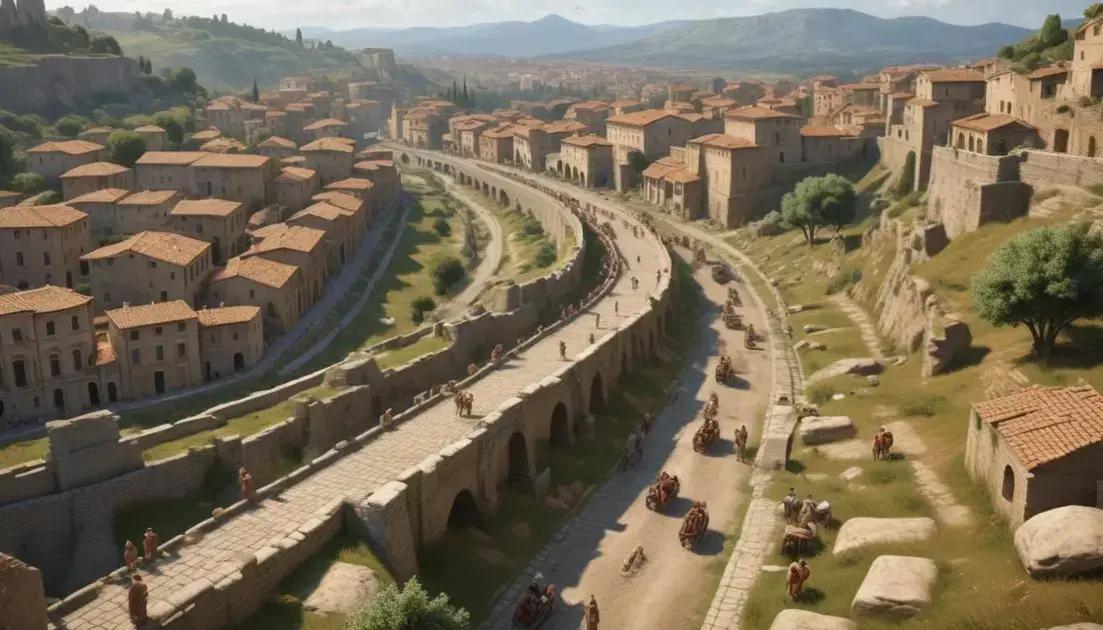
Decius and “Public Sacrifice”: Christians Under Imperial Pressure
The persecution of early Christians under Emperor Decius had a lasting impact, defining their identity and strengthening community bonds. This period of suffering inspired many to remain steadfast in their faith, creating a legacy of courage and resilience. The bravery of martyrs motivated others and highlighted the ongoing struggle for religious freedom within the Roman Empire, shaping future acceptance of Christianity.
The decree by Decius requiring public sacrifice to Roman gods placed immense pressure on Christians, challenging their faith and loyalty.
Understanding Decius’s Edict
Decius issued an edict in 250 AD, demanding that all Roman citizens offer sacrifices to the Roman gods. This decree was a reaction to the growing influence of Christianity. The Roman Empire saw Christianity as a threat to its unity and traditional values.
Many Christians were faced with a tough choice. They could give in and participate in the public sacrifices or stand firm in their faith. Those who refused often faced harsh punishments. Some were imprisoned, while others were executed.
The Pressure on Christians
This edict put immense pressure on Christians. They were part of a community that valued loyalty and faith yet now faced the risk of persecution. Some chose to apostatize—renouncing their faith to avoid punishment. Others were willing to endure suffering for their beliefs.
Public Reaction
The public reaction to the edict was mixed. Some citizens supported it as a way to restore traditional Roman values. Others felt pity for those persecuted. This divide created tension within society, as friends and families were split over differing beliefs.
In the end, Decius’s edict marked a significant moment in the history of Christian persecution. It highlighted the struggles early Christians faced in a world that was often hostile to their beliefs. The legacy of this period would shape the future of Christianity and its place in Roman society.
Impact on Early Christians
The edict from Decius had a big impact on early Christians. Many faced difficult decisions about their faith. Some Christians were willing to sacrifice their beliefs to avoid punishment.
Others stood firm, even when faced with harsh consequences. This included imprisonment and even execution. Their bravery in the face of danger inspired many others.
Communities Divided
Decius’s decree divided communities. Families and friends often disagreed on what to do. Some chose to participate in the sacrifices to fit in or avoid trouble.
This created tension among Christians. Some saw apostates as betraying their faith. Others believed survival was more important.
Long-lasting Effects
The persecution led to a stronger Christian identity. Those who remained loyal to their faith bonded even more. They formed tight-knit groups for support and worship.
This period of testing also helped define Christian beliefs. Many began to think about what it truly meant to follow Christ.
In time, these challenges would shape the future of Christianity. The strong reactions to Decius’s edict played a crucial role in its history.
Responses to the Persecution
When Decius’s edict came, responses varied among Christians. Many felt afraid and unsure about what to do next. Some chose to flee to safer places. Others tried to hide their beliefs to avoid trouble.
There were also Christians who stood strong. They believed that their faith was worth any punishment. These brave individuals often gathered for secret meetings to encourage one another.
The Role of Leaders
Christian leaders played a key role during this tough time. They provided guidance and support to their communities. Many leaders chose to face persecution rather than abandon their faith.
Some leaders were arrested and executed, becoming martyrs. Their sacrifices inspired others to remain faithful, even in danger.
Development of New Strategies
As persecution continued, early Christians developed strategies for survival. They began to hold worship services in secret. These gatherings helped build community and strengthen faith.
Christians learned to rely on each other for protection and support. They often helped those who were suffering due to their beliefs.
This period of persecution also helped shape Christianity. It laid the groundwork for more organized church leadership. The challenges forced Christians to unite and develop a stronger identity.
Historical Context of Religious Freedom
The historical context of religious freedom in Rome is quite complex. At the time of Decius, the Roman Empire was a diverse place. People practiced many religions alongside one another.
However, the government preferred traditional Roman beliefs. They saw these beliefs as a way to keep unity among citizens. This often put pressure on minority groups, like Christians. They faced challenges because their beliefs differed from mainstream Roman ideals.
The Role of Religion in Roman Society
Religion was deeply woven into everyday life in Rome. The Romans had many gods and goddesses. Each one played a role in daily rituals and ceremonies. This belief system was crucial for political and social order in society.
Growth of Christianity
As Christianity spread, it became more popular. Early Christians valued faith and community over Roman traditions. This new faith sometimes clashed with the Roman government.
Some leaders viewed Christianity as a threat. They worried that it would weaken the connection between citizens and the state. The edict from Decius was one way to try to reinforce old ways of worship.
Understanding the historical context of religious freedom helps to show why Decius acted as he did. It shows the struggles that early Christians faced and how their faith formed despite challenges.
Legacy of the Persecution
The legacy of persecution during Decius’s reign is significant. It shaped the early Christian community in many ways. Christians who suffered were often admired for their courage. This bravery inspired others to take their faith more seriously.
Over time, these challenges helped define Christian beliefs. Suffering for one’s faith became a mark of true devotion. Stories of martyrs spread, showcasing their strength and commitment.
The Formation of Christian Identity
As Christians faced persecution, a stronger community emerged. Believers found support in each other. They gathered secretly to share their faith and encourage one another.
This sense of unity was crucial. It provided strength during hard times and strengthened their resolve to stick together.
Martyrdom and Its Impact
The stories of martyrs had a huge impact on Christians. These individuals were celebrated for their ultimate sacrifice. Their stories became a source of inspiration for future generations.
Church leaders used these narratives to teach about faith and resilience. They often highlighted the sacrifices these individuals made for their beliefs.
The legacy of Decius’s persecution also highlighted the struggle for religious freedom. Though it was a dark time, it paved the way for future understanding and acceptance of Christianity within the Roman Empire.
Conclusion
In summary, the persecution under Decius had a profound effect on early Christians. It shaped their identity and strengthened their communities. The bravery of martyrs during this time became a source of inspiration for many. Believers united, supporting each other through tough times.
This period of struggle also highlighted the need for religious freedom. While it was a dark chapter, it led to greater understanding and acceptance. The legacy of these early Christians is still felt today, reminding us of the power of faith and resilience in the face of adversity.


